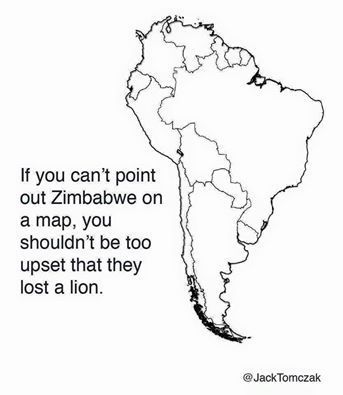I'm a Business Admin grad.
I took the classes I grok the material.
The problem is econ is both super simple and insanely complicated.
Predicting things requires accounting for so many variables that it just can't really be done except in the broadest of sweeps.
But economists do try...
Inflation is BAD!
Deflation is BAD!
Prices remaining steady is STAGNATION, and BAD!
Commodity prices are low is GOOD!
Commodity prices are low is BAD!
Commodity prices are high is GOOD!
Commodity prices are high is BAD!
Any of those markers taken on their own can be indicative of anything. Figuring out what they actually are indicating means adding in and accounting for more variables.
I am starting to believe that the real cause of depressions and recessions is the people who predict them constantly and become to need and want to be vindicated. With their charts and graphs and pulpits they convince people the sky is falling and that in turn causes the prophecy to be fulfilled.
They are the same people who can prevent a recovery with the same doom and gloom.
A great deal of this is a mind game.
What is the mechanism that causes a healthy company's stock to rise and a sick company's stock to fall?
How is that mechanism related to a healthy company with poorly performing stock suddenly going out of business?
Because people believe.
Most people have no clue what stocks are. They're kind of a loan. The only time a company gets direct value from a stock is at its initial offer. If they offer at $1 a share and sell 10,000 shares, that's $10,000 that goes into the company coffers.
How much money does the company get if the price per share jumps to $5?
$0.00.
After the initial sale, it's actually worthless to the company except for the mind game of investors gambling on the value of the chit.
Likewise, how much does the company lose if the price drops to $0.50 a share?
The same $0.00.
If it weren't for the mind game of the no-limits high-stakes gambling known as the stock market issuing stocks (especially non-voting, zero dividend stocks) would be known as a confidence scheme.
And it all meshes into the zeroth rule of economics. Things are valuable because people think they are.
It's why I am unconcerned over the value of my house. I bought it as a place to keep me dry in the rain and warm in the cold. The only metric of value that matters (to me) for my dwelling. That I am paying more than I would if I'd bought it today doesn't really matter much since we made the decision that we'd pay what we did when it was more expensive.
I don't feel cheated by the market.
In fact I'd been well prepared by everything else I've ever bought to expect its value to drop as it became more used.
I took the classes I grok the material.
The problem is econ is both super simple and insanely complicated.
Predicting things requires accounting for so many variables that it just can't really be done except in the broadest of sweeps.
But economists do try...
Inflation is BAD!
Deflation is BAD!
Prices remaining steady is STAGNATION, and BAD!
Commodity prices are low is GOOD!
Commodity prices are low is BAD!
Commodity prices are high is GOOD!
Commodity prices are high is BAD!
Any of those markers taken on their own can be indicative of anything. Figuring out what they actually are indicating means adding in and accounting for more variables.
I am starting to believe that the real cause of depressions and recessions is the people who predict them constantly and become to need and want to be vindicated. With their charts and graphs and pulpits they convince people the sky is falling and that in turn causes the prophecy to be fulfilled.
They are the same people who can prevent a recovery with the same doom and gloom.
A great deal of this is a mind game.
What is the mechanism that causes a healthy company's stock to rise and a sick company's stock to fall?
How is that mechanism related to a healthy company with poorly performing stock suddenly going out of business?
Because people believe.
Most people have no clue what stocks are. They're kind of a loan. The only time a company gets direct value from a stock is at its initial offer. If they offer at $1 a share and sell 10,000 shares, that's $10,000 that goes into the company coffers.
How much money does the company get if the price per share jumps to $5?
$0.00.
After the initial sale, it's actually worthless to the company except for the mind game of investors gambling on the value of the chit.
Likewise, how much does the company lose if the price drops to $0.50 a share?
The same $0.00.
If it weren't for the mind game of the no-limits high-stakes gambling known as the stock market issuing stocks (especially non-voting, zero dividend stocks) would be known as a confidence scheme.
And it all meshes into the zeroth rule of economics. Things are valuable because people think they are.
It's why I am unconcerned over the value of my house. I bought it as a place to keep me dry in the rain and warm in the cold. The only metric of value that matters (to me) for my dwelling. That I am paying more than I would if I'd bought it today doesn't really matter much since we made the decision that we'd pay what we did when it was more expensive.
I don't feel cheated by the market.
In fact I'd been well prepared by everything else I've ever bought to expect its value to drop as it became more used.

